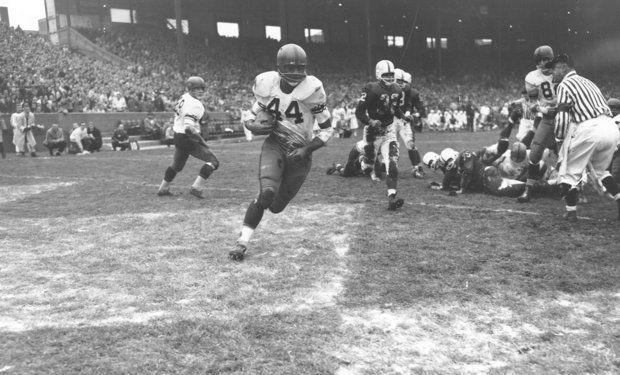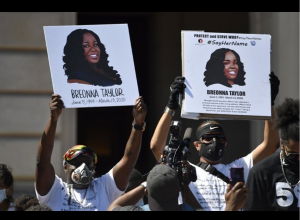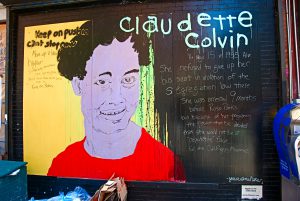Ernie Davis is remembered as one of the most dynamic running backs in NCAA football history. Overcoming adversity is something he had been doing since the time he was born in 1939 in his hometown of New Salem, Pennsylvania. A few days after Ernie was born, his father passed away and his mother was not in the condition to take care of her newborn child. So, Ernie was raised by his maternal grandparents in Uniontown, Pennsylvania. Growing up, Ernie had a bad stuttering problem leaving it hard for him to communicate with others, but his grandparents helped him cope with it and managed to instill strong faith and discipline in him. When Ernie turned twelve, his mother returned back to his life and had him move to Elmira, New York. As Ernie grew older, people all around town began raging about Ernie “the Elmira Express” Davis and his dynamic football skills. He was actively recruited by dozens of colleges. But swayed by his hero Jim Brown, he was convinced to attend the University of Syracuse.1

When Ernie Davis arrived at Syracuse in 1958, his welcome was anything but warm. His own teammates would beat him and target him in practice. There was an incident where a defensive player threw Ernie to the floor and beat him until the coaches pulled him off of Ernie. But, Coach Floyd Benjamin “Ben” Schwartzwalder pushed very hard to get the team to play as one and respect each other as a team rather than hate each other because of the color of their skin. Once Ernie became adapted to the school, and once his teammates warmed up to him, he was moved up to varsity. This was when Coach Schwartzwalder began to shape the young Ernie Davis into the Elmira Express that he would forever be remembered as. In practice, he quickly adapted to this collegiate level and was named the new starting running back for the season to come.2

After Syracuse finished the 1959 season with a respectable record of 8-2 and finishing tenth in the nation, many were hopeful for what the future held for the Fighting Orangemen. So, at the start of the 1960 football season, there were high expectations for both the young Ernie Davis and the Syracuse Fighting Orangemen.3 The Coaches and Boosters of the university questioned whether or not Davis would be able to fill the shoes of future Hall of Famer Jim Brown, and many wondered whether he could lead Syracuse to their first National Championship victory. Ernie Davis and the Fighting Orangemen hit the ground running and went undefeated in the regular season beating nine teams by over a twenty-one point margin.4
The regular season would be nothing compared to what they were going to face in the 1960 Cotton Bowl. The night before the highly anticipated game, Ernie and his team arrived in Dallas, and the hotel they made reservations at refused to let Ernie and two other teammates stay in the main part of the hotel. That night Ernie had to stay in the basement level of the hotel where he woke up to a pile of death threats and letters telling him not to compete in the Cotton Bowl. In fear of a violent outburst at the game, the Mayor of Dallas, Robert Lee Thornton, sent snipers to the stadium in an effort to try to ensure peace during the game.5
The moment of truth had finally come for the Orangemen, and it was time for the Elmira Express to lead his team to a National Championship victory at the Cotton Bowl. From the moment the ball was kicked off it was clear that Davis was playing on another level, as he averaged 7.8 yards per carry. As the game progressed, Ernie started getting beat up after plays, particularly in dog piles, and they gradually got worse. Tensions between the two teams were rising. Ernie Davis was beaten so badly after one play that he had to be escorted to the locker room so a doctor could look at his already injured hamstring. But, Davis would later be returned to the game, after going against what the doctor had suggested, which was to sit out the rest of the game and take it easy. Halftime was approaching and the score was 15-0. Syracuse was up and the aggression and altercations began to get worse. Then: “John Brown, a Negro lineman, played nose to nose against 235-pound Texas tackle Larry Stephens. To goad him off balance, Brown claimed, Stephens kept calling him ‘a big black dirty nigger.’ Finally, Brown warned him not to call him that again. When Stephens did, Brown swung.”6 That punch exploded into an all-out brawl between Texas and Syracuse, which would come to be known as “The Battle of the Hard-Noses.” Syracuse eventually went on to win the Cotton Bowl and claim their first National Championship in school history.7
The 1961 season came, and Ernie Davis just kept getting better. That season, he averaged 7.8 yards per carry and ended up breaking the school record for touchdowns in a single season. Everyone in the country was watching The Elmira Express shatter records and continue to carry his team to victory. The Fighting Orangemen would end up finishing the season 8-3, and finished sixteenth in the country and won the Liberty Bowl.8 Once the Season was concluded, the press and people began to discuss the Heisman Trophy Ceremony. Even President John F. Kennedy sent Ernie Davis a telegram commending him on fighting and competing in a sport he loved, and wished him luck in his NFL career and the upcoming Heisman Trophy Ceremony. Although the president was very supportive of young Ernie Davis, much of the country still made it hard for Davis to go places or be normal. There were many reports that he had still been receiving death threats constantly since the Cotton Bowl. There was even an incident where people were throwing food at him in public while he was on a run in the weeks leading up to the Heisman.9

For many years, African-American players weren’t even considered for the Heisman Trophy. Even the NFL Hall of Famer and Ernie Davis’s hero, Jim Brown, was nominated and clearly deserved the Heisman in 1958. When the day of the Heisman Trophy Ceremony had finally arrived, there was still no clear candidate that stuck out as the next Heisman trophy winner. So who would win was still very unclear to the country. But in 1961, Ernie Davis became the first African American to win the Heisman Trophy, and JFK was there to present the trophy to him personally. This event gave the Civil Rights movement momentum, and helped Americans begin to see that this concept of equality could be achieved.10
After winning the Heisman Trophy, Ernie Davis was prepared for the All-American game and was drafted by the Cleveland Browns as the first overall pick in the 1962 NFL draft. One day, while at practice, Davis passed out and laid unconscious on the field, and was rushed to the hospital. He was placed in the hospital for an extended period of time, and the doctors ran numerous tests on him. After this time, he was eventually released from the Cleveland Browns because they discovered that he had been diagnosed with leukemia.11
On May 18, 1963, Ernie the Elmira Express Davis died. Ernie Davis changed the game of football; he was the first African American to win the Heisman and be the first pick in the NFL draft. Davis never said much, but he led by action, and made change through action. He became an inspiration to a lot of people in American society and refused to ever let the color of his skin hold him back from chasing his dreams. He will forever be remembered for that.12
- Eric Quackenbush, “Ernest ‘Ernie’ Davis: The Elmira Express,” Bleacher Report, June 24, 2009. Accessed February 7, 2018. http://bleacherreport.com/articles/205915-ernest-ernie-davis-the-elmira-express. ↵
- Brad Kelly, “Ernie Davis, Uplifting Champ Rush To The Top: He led Syracuse to the national title before his young death,” Investors Business Daily, December 14, 2009. Accessed January 29, 2018. ↵
- Eric Quackenbush, “Ernest ‘Ernie’ Davis: The Elmira Express,” Bleacher Report, June 24, 2009. Accessed February 7, 2018. http://bleacherreport.com/articles/205915-ernest-ernie-davis-the-elmira-express. ↵
- Eric Quackenbush, “Ernest ‘Ernie’ Davis: The Elmira Express,” Bleacher Report, June 24, 2009. Accessed February 7, 2018. http://bleacherreport.com/articles/205915-ernest-ernie-davis-the-elmira-express. ↵
- Ben Cosgrove, “LIFE at the 1960 Cotton Bowl: ‘Battle of the Hard-Noses’,” Time, January 2, 2014. Accessed January 29, 2018. http://time.com/3878581/cotton-bowl-1960-when-syracuse-whipped-texas-forthe-national-title/. ↵
- Ben Cosgrove, “LIFE at the 1960 Cotton Bowl: ‘Battle of the Hard-Noses’,” Time, January 2, 2014. Accessed January 29, 2018. http://time.com/3878581/cotton-bowl-1960-when-syracuse-whipped-texas-forthe-national-title/. ↵
- Ben Cosgrove, “LIFE at the 1960 Cotton Bowl: ‘Battle of the Hard-Noses’,” Time, January 2, 2014. Accessed January 29, 2018. http://time.com/3878581/cotton-bowl-1960-when-syracuse-whipped-texas-forthe-national-title/. ↵
- Eric Quackenbush, “Ernest ‘Ernie’ Davis: The Elmira Express,” Bleacher Report, June 24, 2009. Accessed February 7, 2018. http://bleacherreport.com/articles/205915-ernest-ernie-davis-the-elmira-express. ↵
- Eric Quackenbush, “Ernest ‘Ernie’ Davis: The Elmira Express,” Bleacher Report, June 24, 2009. Accessed February 7, 2018. http://bleacherreport.com/articles/205915-ernest-ernie-davis-the-elmira-express. ↵
- Sean Krist, “Ernie Davis and JFK: More than 50 years ago, key figures in D.C. football time of change,” Syracuse.com, August 20, 2o14. Accessed February 21, 2017, http://www.syracuse.com/kirst/index.ssf/2014/08/ernie_davis_and_jfk_more_than_50_years_ago_key_figures_in_another_dc_football_ca.html. ↵
- Eric Quackenbush, “Ernest ‘Ernie’ Davis: The Elmira Express,” Bleacher Report, June 24, 2009. Accessed February 7, 2018. http://bleacherreport.com/articles/205915-ernest-ernie-davis-the-elmira-express. ↵
- Salem Press Biographical Encyclopedia, January 2016, s.v. “Ernie Davis,” by Stephen Schwartz. ↵



64 comments
Cristina Cabello
I can not say that I am a true football fan, but I do enjoy watching it. Reading about Ernie Davis was really interesting. I find it interesting because he was the first African American to win the Heisman and chosen first in the NFL draft. Just like the article about Misty, on this cite, I liked how both people strived to reach their dreams. Not only did they reach them, but they surpassed them by making history.
Elias Garza
I tried out for the football team in high school and immediately realized this sport was not for me. This story is truly inspiring because it involevs the first African American award winning football player. However the ending of this story saddening. Football is a sport that takes bravery and courage and any man that plays has my respect. Overall, this is article definitely has potential to win an award.
Maria Mancha
Football is one of the best sports to watch in America and of course one of my favorites. However I was not familiar with Ernie Davis. The article was really heartwarming and inspiring. He overcame what any people believed he could have never. He proved so many people wrong. Becoming the first African American to win the Heisman that is truly inspiring. This was a great article and I learned about Ernie Davis and his amazing sorry. Great article Thomas it truly deserves its nomination.
Matthew Wyatt
This is an inspiring story with an unfortunately tragic ending. I’d never heard of Ernie Davis myself, which is sad since I do enjoy watching football and cheering on my favorite team. I’m grateful to the author for telling me the story of the first African-American to ever win the Heisman and be chosen first overall in the NFL draft.
Anthony Robledo
I am a huge NFL fan and a pretty big college football fan, but i have never heard of Ernie Davis. His life story is definitely one to remember though. He is a true inspiration and hero of his time. It goes to show what pure determination can do for someone. He truly had a passion for football and the author does a good job showing that. Good job on this article and keep up the good work.
Gloria Baca
Prior to reading this article, I had no knowledge of who Ernie Davis was but right now I am intrigued. Ernie Davis became an icon when he became the first African American Heisman winner. In an era of struggle he was able to overcome adversity and pursue his dream of becoming a football player. Nothing held him back and besides obstacles in his way he went ahead and achieved his dream. I enjoyed reading this article as I love learning about special individuals overcoming adversity. Great job!
Belia Camarena
I am not big into sports, but I am so glad that I read this article. Ernie Davis is an inspiration to all. He worked harder towards his goals than most people would, and he never let the color of his skin determine what he could and could not do. It is unfortunate though that his football career was cut short due to his cancer. Nonetheless, the contributions he made to the sport will never be forgotten.
Robert Rodriguez
Ernie Davis’s story is very inspirational to all, to lose one parent and have the other one have to abandon you because financial reasons is heartbreaking. I couldn’t imagine the amount of pain Davis went through throughout his life because of that. Despite all the things that happened in his childhood and the discrimination he faced by his own teammates and football fans, he preservered and continued to chase his dream of playing football and succeeded in doing so. Great article!
Rafael López-Rodírguez
What a great and inspiring story!!! I have not heard of the story of Ernie Davis before and I enjoyed reading this story from beginning to end. What Ernie was able to do in the time he lived I believe really set the tone for the civil rights movement that was going on. When you overcome adversity and prove the people that doubt you wrong is a very strong relief especially in an athlete. Because I know the life of an athlete is full of adversity. I believe Ernie Davis is an athlete that many look up to, especially for African-Americans.
Max Lerma
This was great to read! I had never heard of Ernie Davis before, but your article not only informed me about him, it inspired me to read more about him. Stories about athletes, especially ones who had to overcome great odds are always an inspiration because they show that hard work and dedication pay off. Thanks again for this article and letting us know about what an incredible athlete Ernie Davis was.